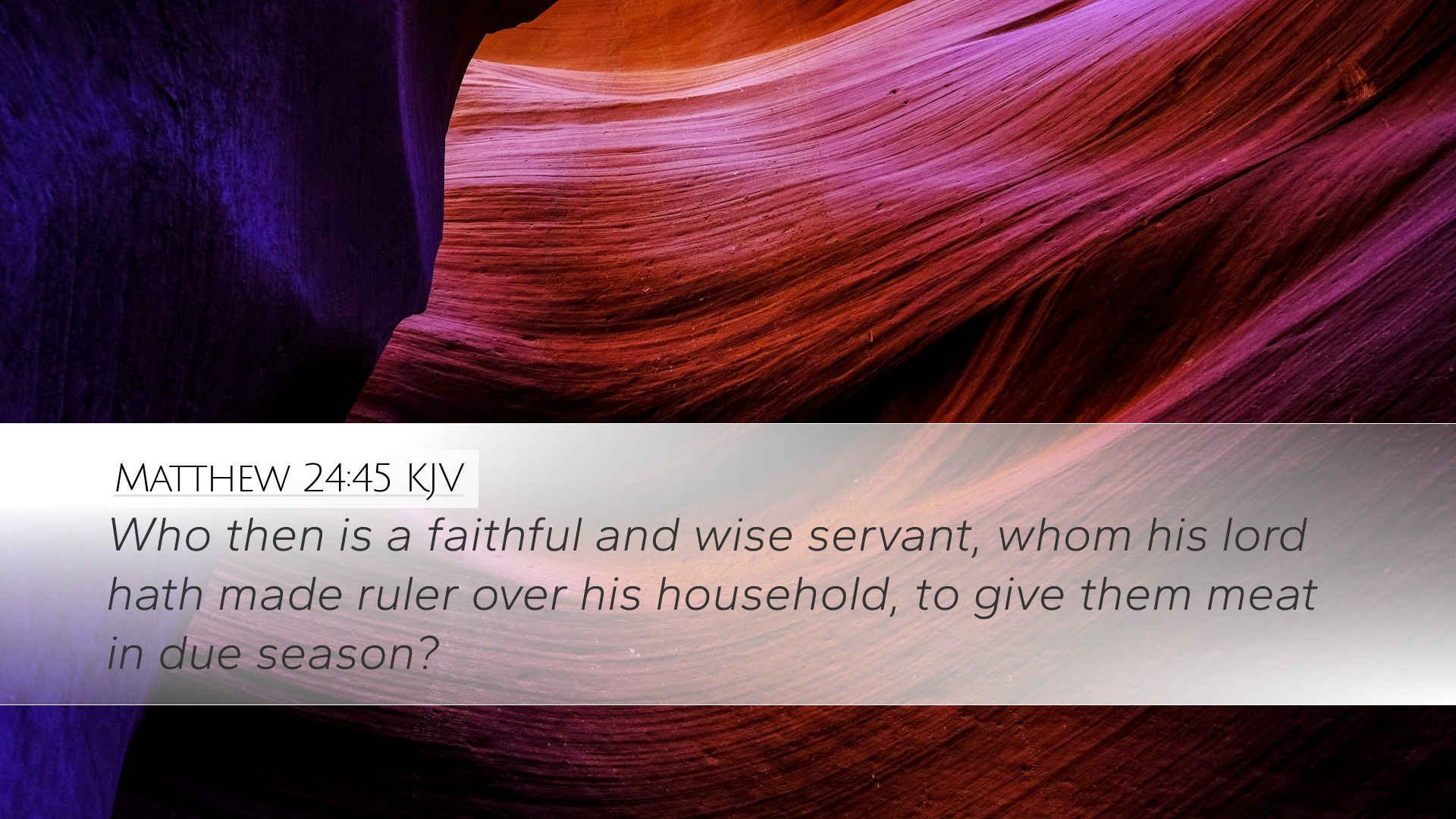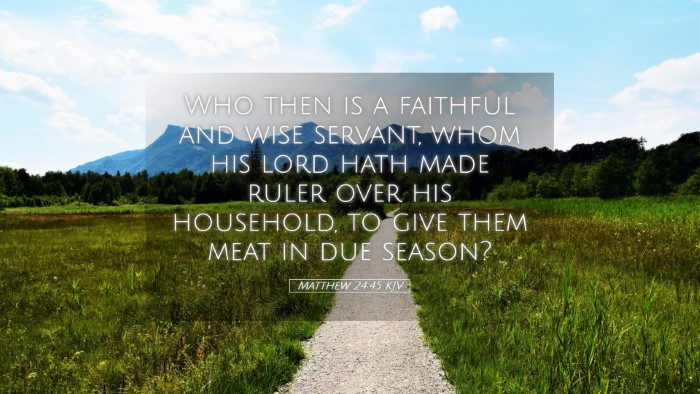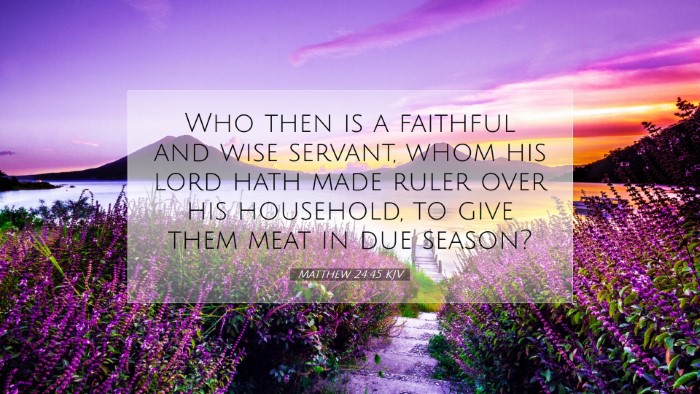Commentary on Matthew 24:45
In Matthew 24:45, we find a significant teaching from Jesus regarding the responsibilities of His servants in the context of His second coming. This verse reads:
"Who then is the faithful and wise servant, whom his master has made ruler over his household, to give them food in due season?" (Matthew 24:45, NKJV)
Contextual Analysis
This verse is part of the Olivet Discourse, where Jesus addresses His disciples about the end times and the signs of His second coming. The passage emphasizes vigilance, preparedness, and stewardship in the light of Christ's return.
Key Themes
- Faithfulness and Wisdom: The servant's qualifications hinge on being both faithful and wise. Such attributes are essential for effective leadership and stewardship.
- Responsibility: The master entrusts authority over his household, highlighting the trust placed in those who follow Christ.
- Provision: The role involves providing sustenance, indicating that spiritual nourishment is a key duty of the believer.
Commentary Insights
Matthew Henry
Matthew Henry emphasizes that the phrase "faithful and wise servant" showcases the qualities that are rewarded by the master. A faithful servant is one who is reliable and trustworthy, carrying out his duties diligently. Wisdom, on the other hand, implies the ability to act judiciously and with discernment, especially regarding the timing and manner of providing for others.
Henry also suggests that this verse serves as a call to vigilance for all believers; they are not just awaiting the master’s return but are actively engaged in doing the work He has set before them. He points out that a servant's faithfulness can be measured by how well he follows the instructions of his master, suggesting that believers should continually seek God's will in their lives.
Albert Barnes
Albert Barnes discusses the notion of the "household" in this verse, suggesting that it symbolizes the community of believers. He notes that Christ’s intention is to prepare His followers for a role in nurturing and guiding this community. The phrase "to give them food in due season" suggests that there is a need for timely and appropriate spiritual nourishment, reinforcing the importance of pastoral care and teaching.
Moreover, Barnes points out that the faithful servant reflects the character of Christ Himself, who provides for His followers. This understanding enriches the interpretation of the verse, revealing that believers are called to emulate Christ by providing for the needs of others, particularly in their spiritual lives.
Adam Clarke
Adam Clarke brings attention to the significance of being a ruler over the household. He interprets the term as indicative of care and provision, portraying the servant as not only a caretaker but also an administrator. Clarke insists that the faithful servant operates under the master’s authority and reflects his master’s values and priorities.
Clarke further illuminates the context by illustrating that the servant’s role is both a privilege and a responsibility. The faithful servant must pursue his duties with a sense of urgency and accountability, aware that he will be held responsible for how well he has tended to the household in the master’s absence. The emphasis on "in due season" also suggests that timing, as well as the act of feeding, is essential in ministry and leadership.
Application for Today's Believers
As modern-day followers of Christ, the teachings encapsulated in Matthew 24:45 are as vital now as they were during the time of Christ’s ministry. Each believer carries the responsibility to act as a faithful servant, demonstrating reliability in their spiritual duties.
Pastors, theologians, and lay leaders should reflect on the dual qualities of faithfulness and wisdom when approaching their roles within the church. This extends to being sensitive to the needs of their congregation, providing timely support, guidance, and nourishment through teaching and service.
Moreover, students of the Word must recognize their part in nurturing the broader community of believers—whether in sharing the Gospel, encouraging others, or engaging in acts of service.
Conclusion
Matthew 24:45 challenges each believer to assess their faithfulness and wisdom as they await the master’s return. It emphasizes that stewardship is not a passive endeavor but an active and ongoing commitment to serving others in line with God's purpose.


